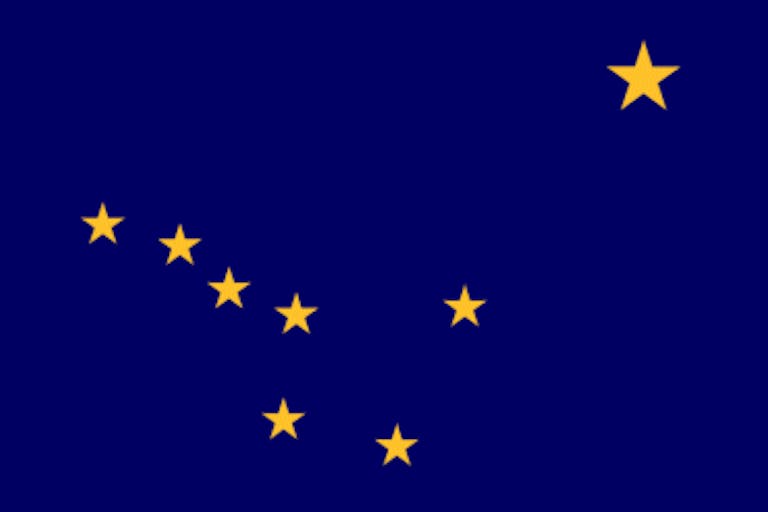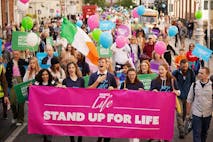
Vietnamese Catholics widen support for pregnant mothers
Angeline Tan
·
Parental Notice Law Finally Upheld in Alaska, Despite Opposition’s Inaccurate Findings
Planned Parenthood continues to fail when it comes to the real health of women and girls.
As I mentioned in my article about the abortion giant back in July, Planned Parenthood continually rejects any limitation on abortion – even parental notification bills. One example is the parental notification law in Alaska. Despite over half of voters in the state agreeing on the law in 2010, Planned Parenthood of Great Northwest took action and sued the state of Alaska, claiming that the law was unconstitutional in that it deprives minors of their right to privacy and denies their equal protection.
Despite Planned Parenthood’s challenge, Alaska’s parental notification law was just upheld by the state’s Superior Court. Back when the law was passed by the voters, Planned Parenthood immediately went to court, but a first victory was won when the state trial court allowed the law to go into effect while the litigation continued.
Americans United for Life’s Mailee Smith described the Superior Court’s recent decision:
In Planned Parenthood of the Great Northwest v. State of Alaska, the Superior Court for the State of Alaska ruled that the parental notification law, which requires an abortion provider to give notice to a parent or guardian before performing an abortion on a minor, does not violate the state’s constitution. The court also upheld provisions requiring that the parent or guardian provide valid identification and providing for criminal penalties for those who violate the law.
While the law was passed in 2010, the constitutionality behind it has been argued in the Alaskan courts since 1997. Smith mentions the history:
In 1997, the state legislature enacted a parental consent statute, but that law was ultimately struck down under the auspices of the state constitution’s ‘right-to-privacy,’ with the state supreme court holding that the state privacy right confers a broader ‘right’ to abortion than the U.S. Constitution.
Despite the recent victory, Smith mentions that the case will likely be appealed. Nevertheless, despite the likely appeal and some inaccurate court findings about abortion, Smith believes that pro-lifers should feel encouraged by the decision. As she concludes:
Article continues below
Dear Reader,
In 2026, Live Action is heading straight where the battle is fiercest: college campuses.
We have a bold initiative to establish 100 Live Action campus chapters within the next year, and your partnership will make it a success!
Your support today will help train and equip young leaders, bring Live Action’s educational content into academic environments, host on-campus events and debates, and empower students to challenge the pro-abortion status quo with truth and compassion.
Invest in pro-life grassroots outreach and cultural formation with your DOUBLED year-end gift!
But overall, pro-life advocates should be encouraged by this decision. AUL attorneys have been actively involved in the fight to protect minors and parental rights in Alaska. AUL has repeatedly consulted with legislators, attorneys, and other allies in Alaska, filed a brief in the Alaska Supreme Court in defense of the 1997 parental consent law, helped to prepare the attorney who argued in defense of the parental consent law, and vetted the language of the 2010 parental involvement ballot initiative.
Planned Parenthood Northwest had their own statement about the court’s decision, on the homepage of Planned Parenthood Votes Northwest. The statement is a press release titled “COURT ABANDONS MOST VULNERABLE TEENS.” The suit was brought by Planned Parenthood of the Great Northwest, as well as by the Alaska American Civil Liberties Union and the Center for Reproductive Rights. Their reasoning for being against the law can be summed up by these paragraphs:
The evidence in Alaska shows that most young women seeking an abortion involve a parent. But some young women live in an abusive home, or a home where it would not be safe to disclose a pregnancy. Due to the court’s ruling yesterday, these young women will continue to be forced to endure a complicated legal process to persuade a judge they may have an abortion without parental involvement—putting their health and lives in jeopardy.
‘We are deeply disappointed that the Judge ruled against Alaska’s most vulnerable teens. At Planned Parenthood we always encourage our patients to involve their parents in their pregnancy decisions,’ said Christine Charbonneau, CEO of Planned Parenthood of the Great Northwest. ‘However, not all teens live in caring and loving homes. Some young women just can’t go to their parents or guardians. Today’s decision acknowledges the maturity of young women and their ability to make safe and appropriate health care decisions for themselves, but still requires them to go through legal hoops to access constitutionally protected reproductive health care services.’
I will not disagree that those teens seeking abortion may be some of the most vulnerable teens. But these vulnerable teens do not need abortion; they need love and support. Those teens who do decide to go through an abortion, with their parents’ permission, may also have a medical history that only their parents know about. Certainly pregnant teenagers need their parents for medical reasons at the very least – yet Planned Parenthood and others who have filed a suit ignore this.
Remember the inaccurate court findings? Smith mentions in her column that this includes:
…that abortion carries no risk of pre-term birth or psychological harm—risks which are actually well-documented in the medical literature.
Fortunately, in other states, such as South Dakota, informed consent laws – which inform women of such risks – have been upheld. However, Planned Parenthood is naturally against such informed consent laws as well.
While Planned Parenthood may insinuate with such a title for their statement (Court Abandons Most Vulnerable Teens) that they wish to help vulnerable women and girls, their form of “help” mostly includes abortion. There is always the hope that those considering abortion will change their minds, but Planned Parenthood doesn’t seem to have much time for such women. By Planned Parenthood’s own numbers in 2010, adoption referrals went down to 841. If we compare 841 adoption referrals to 328, 445 abortions in 2010, abortions outnumber adoption referrals nearly 391 to 1.
And I can certainly think of worse ways of abandoning pregnant teenagers than by having them continue their pregnancy or by ensuring that their own medical needs are accounted for and taken care of. So yes, pregnant teenagers may be the most vulnerable teenagers, but abortion – especially without their parents’ involvement – is not what they need. Pregnant teens do not need abortion, but they especially do not need it when they do not have the accurate medical knowledge their parents can provide. Planned Parenthood, if they really wish to support the health of women and girls – as they claim – should know this and should be welcoming parental involvement, especially when parents look out for and protect their teenage daughters in ways that Planned Parenthood could never do.
Live Action News is pro-life news and commentary from a pro-life perspective.
Contact editor@liveaction.org for questions, corrections, or if you are seeking permission to reprint any Live Action News content.
Guest Articles: To submit a guest article to Live Action News, email editor@liveaction.org with an attached Word document of 800-1000 words. Please also attach any photos relevant to your submission if applicable. If your submission is accepted for publication, you will be notified within three weeks. Guest articles are not compensated (see our Open License Agreement). Thank you for your interest in Live Action News!

Angeline Tan
·
Politics
Nancy Flanders
·
Politics
Bridget Sielicki
·
Politics
Stefano Gennarini, J.D. and Kelly Heilman, J.D.
·
Politics
Bridget Sielicki
·
Politics
Angeline Tan
·
Fact Checks
Rebecca Downs
·
Newsbreak
Rebecca Downs
·
Newsbreak
Rebecca Downs
·
Newsbreak
Rebecca Downs
·
Newsbreak
Rebecca Downs
·